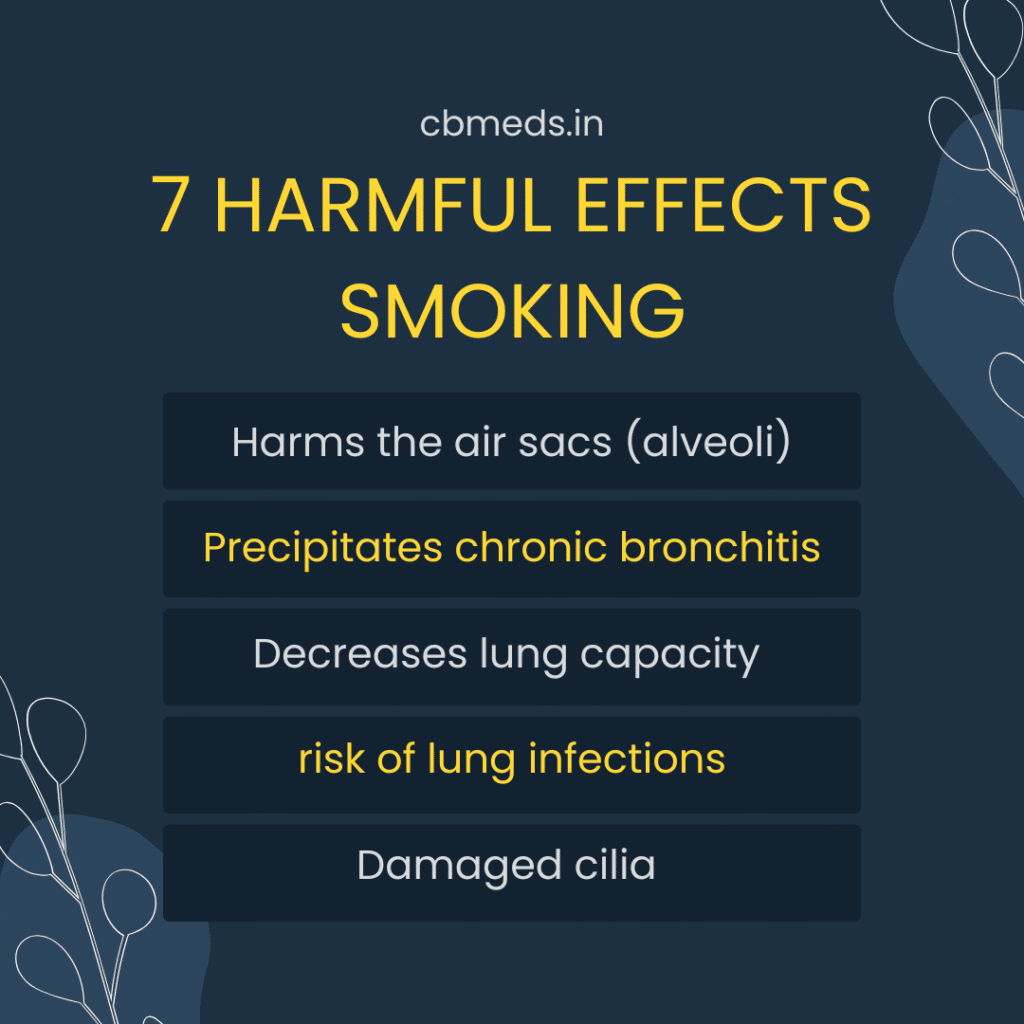
We’ve all seen the warnings on cigarette packs and heard the slogans — but do we truly understand the damage smoking does to the lungs?
Every puff of smoke you inhale floods your body with over 7,000 toxic chemicals, many of which go straight to your lungs — weakening, inflaming, and destroying their natural defences over time.
Here are 7 serious and often irreversible ways smoking harms your respiratory system:
1. 🫁 Harms the Air Sacs (Alveoli)
The alveoli are tiny air sacs in your lungs where oxygen and carbon dioxide are exchanged. Smoking damages these delicate structures, making them lose elasticity and leading to emphysema — a major component of chronic obstructive pulmonary disease (COPD).
Once damaged, alveoli cannot regenerate.
2. 😷 Precipitates Chronic Bronchitis
Chronic bronchitis occurs when the lining of your bronchial tubes becomes constantly inflamed. Smoking is the leading cause of this condition, triggering a persistent cough and thick mucus production that clogs your airways.
3. 📉 Decreases Lung Capacity
Smokers often feel breathless, even during mild activity. This is because smoking reduces the efficiency and capacity of your lungs, meaning they can’t hold or process as much air as healthy lungs.
This leads to shortness of breath, fatigue, and poor endurance over time.
4. 🦠 Increases Risk of Lung Infections
Smoking weakens your immune defences, making your lungs more susceptible to frequent infections such as pneumonia, bronchitis, and tuberculosis. Damaged lungs struggle to fight off bacteria and viruses effectively.
5. 🧹 Damages the Lung’s Cilia
Cilia are tiny hair-like structures in your airways that sweep out dirt, dust, and pathogens. Smoking paralyzes and eventually destroys these cilia, leaving your lungs defenceless against harmful substances — resulting in a “smoker’s cough” and chronic mucus build-up.
6. 🚨 Contributes to Lung Cancer
The most well-known consequence of smoking is lung cancer. Smoking is responsible for around 85–90% of all lung cancer cases, making it the number one cause of cancer-related deaths worldwide.
Carcinogens in tobacco smoke mutate healthy lung cells, leading to uncontrolled growth and tumour formation.
7. 🧬 Triggers Inflammation and Scarring
Long-term smoking leads to chronic inflammation, thickening of the airway walls, and irreversible lung scarring (fibrosis). This not only reduces lung function but increases your risk of long-term respiratory failure.
🌱 The Good News? It’s Never Too Late to Quit
The moment you stop smoking, your body starts healing:
- In 20 minutes, your heart rate drops
- In 2 weeks to 3 months, your lung function improves
- In 1 year, your risk of heart disease drops by half
- In 10 years, your lung cancer risk is nearly halved
💡 Final Thoughts
Smoking doesn’t just harm — it steals your breath, your energy, and your years. But the lungs are surprisingly resilient. With the right support and the decision to quit, you can begin reversing some of the damage and breathe easier — literally and figuratively.
🫁 Choose to quit. Choose to breathe. Choose life.
For resources and personalised help to stop smoking, visit cbmeds.in
#QuitSmoking #LungHealth #StopSmokingNow #cbmeds #SmokeFreeLife #COPD #BronchitisAwareness #LungCancerPrevention #HealthBlog #BreatheBetter
